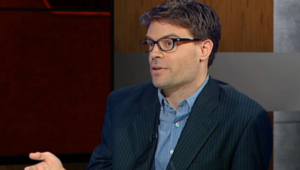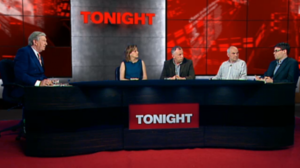The following is an extract from ‘How Irish Propaganda Operates’ by Frank Armstrong reprinted with permission from the the website CassandraVoices. The original, much longer article can read in full here.
Frank Armstrong writes:
Ireland is neither a totalitarian state, nor even a dictatorship. Nonetheless, the propaganda of an economic elite has forged a dominant consensus, in which two centre-right parties compete for power.
Across a print media duopoly and national broadcaster well-honed techniques of social control divert attention and sow confusion, while subtly instilling dogmas. The education system also plays a vital role in propagating social norms and channelling aspirations.
The dominant consensus is not doctrinally extreme or even illiberal, at least by international comparisons, but it insulates embedded wealth in the form of land and property from taxation, stimulates demand for mortgages among the young, and protects the farming sector from environmental oversight….
…Foreign multinationals are a transient presences on the Irish scene. Their indigenous handlers, an aging cohort of predominantly male, property-owning, car-driving, privately schooled, health-insured professionals – lawyers, accountants, doctors, financial service providers and other high-earning business people – are the enduring economic elite of the state.
Its dominant consensus does not emerge from smoke-filled rooms any longer. Rather, it is an aggregate conception of what a ‘normal’, self-interested person of this class aspires to. Indeed, those upholding what is a neo-liberal orthodoxy may be unaware – like Ebenezer Scrooge – of its detrimental effect.
What is an often passive propaganda is expressed through a media dependent on advertising revenue, and in the policies of the two largest political parties.
A recent poll showed seventy percent of the highest (AB) social class support one or other of the two main centre-right political parties, in particular Fine Gael , now the ‘natural party of government’ for the dominant interest.
The ‘bricks and mortar’ of property remains, overwhelmingly, their preferred asset, with many acting as landlords.
Thus, according to economist David McWilliams the wealthiest top five-percent in the country own over forty percent of its wealth, with eighty-five per cent of that held in property and land.
The key objective of Irish propaganda, and we may call it that, is therefore to keep the economy on an even keel of steady growth, and rising rents, while ensuring that wealth, mostly property, is subjected to minimal taxation.
The result is that in the last financial year a mere €500 million out of total tax receipts of over €50 billion, derived from land or property.
The dominant consensus also insists that it is necessary to keep a lid on government expenditure on public services (most of which the elite does not use), so as to avoid the over-heating of Bertie Ahern’s ‘boomenomics’ before the crash of 2008.
Then low taxation on income and wealth went hand-in-hand with spending increases, and public sector salary ‘benchmarking’ with the private sector.
The ineptitude of these policies were partly to blame for a property bubble before the crash of 2008, and has consigned Fianna Fáil to its present subaltern role, in which it now flaunts a more centrist approach.
In a clear signal to the economic elite, Minister for Finance Michael Noonan launched his Budget 2016 claiming the days of ‘boom and bust’ would be consigned to the history books.Throughout his tenure (2011-2017) no serious public housing initiatives were embarked on.
In 2015, for example, by which time economic growth for the year was at 7.8%, a mere 334 social and affordable units were built. The ensuing scarcity ensured a dramatic recovery in property, including that held by the state bank NAMA.
Another salient feature of Irish propaganda is the essential delivery of buy-in from young adults, who continue to purchase property at inflated prices.
Prior to the crash Dublin prices soared to such an extent that a residence in the city became more expensive than New York or London. Dublin prices are set to reach boom-time levels this year according to Pat Davitt, head of the Institute of Professional Auctioneers and Valuers (IPAV), with an average family home costing over half a million euros.
Meanwhile average Dublin rents now exceed the heights of the Celtic Tiger by thirty percent. This means those landholders, and institutions, that weathered the recession have seen huge dividends.
Any new property purchaser instantly becomes a stakeholder in the dominant consensus. The buy-in of upwardly-mobile youth not only maintains market demand, but also brings political support for the dominant consensus.
Political parties threatening the ‘stability’ under the centre-right axis are subtly undermined as the ‘loony’ left and not given a platform in the mainstream media, or co-opted into governing coalitions and discredited, as was the case with Labour, the Greens and now the Independent Alliance…
….The spiral of inequality, globally and nationally is, however, accelerating, and the coalition of interests maintaining the dominant consensus is unstable…
…The economic elite is intellectually rudderless, and only knows the way of economic growth-without-end…
…The centre-right cannot hold for long, but in the meantime, the wheels of Irish propaganda keep turning…..(more at link below)
How Irish Propaganda Works (Frank Armstrong, CassandraVoices)





